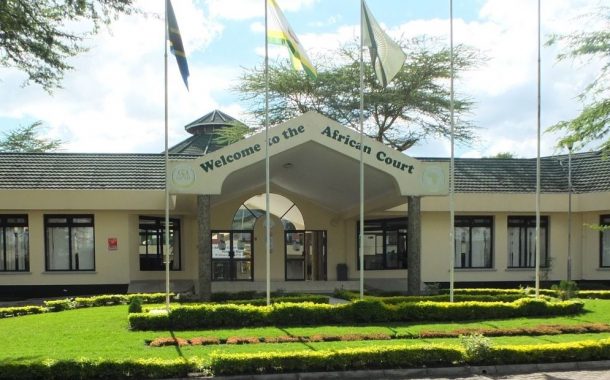By: Rachel H Sanders
Journal of Global Rights and Organizations, Senior Associate Member
BANJUL, The Gambia – Tunisian nationals were denied their application seeking provisional measures to suspend the enforcement of potentially anti-democratic election laws as well as the postponement of the Republic of Tunisia parliamentary elections. The Application was filed against the Republic of Tunisia which had recently received a judgment from the Court on September 22, 2022, ordering that the country restore constitutional democracy. The Tunisian nationals, named Ayadi Fathi, Khlifi Oussama, and Makhloufi Sofiane, were fearful that the President of the Republic of Tunisia was extending his extensive and unchecked powers by implementing “illegal and undemocratic acts which truncated constitutional democracy, leading the country into totalitarianism.”

The Tunisian nationals claimed that the President of the Republic of Tunisia was attempting to set up a parliament that is completely under his control by abrogating the 2014 Constitution, initiating the dissolution of the provisional body in charge of reviewing the constitutionality of draft laws by the Decree-Law No. 2021-117 of September 22, 2021, and initiating the dissolution the of parliament by Decree-Law No. 2022-309 of March 30, 2022. The claimants alleged a violation of (A) the right to participate freely in the government of their country, protected by Articles 13(1)(2) and 24 of the Charter, Articles 1(1) and 14 of the International Covenant on Civil and Political Rights (ICCPR) and Article 1(1) of the International Covenant on Economic, Social and Cultural Rights (ICESCR), (B) the right to non-discrimination protected by Articles 2 and 18(3) of the Charter, and Article 2 of the ICCPR, and (C) the right to freedom of association, protected by Article 10(1) of the Charter. The petitioners focused upon challenging Decree-Law No. 2022-55 which amended and supplemented Organic Law No. 2014 of May 26, 2014, on elections and referendums.
In addition, the Tunisian nationals applied for a postponement of the legislative elections scheduled for December 17, 2022. The applicants claimed that “the Tunisian people stand to suffer imminent and irreparable harm in view of the fact that these elections may plunge the country into institutional disorder and political unrest for an unlimited period of time.” Conversely, the Court found a lack of urgency as the application was filed on January 6, 2023. Confusingly, the application and the request for provisional measures were initially filed on January 6, 2020. Despite that, it took until February 2, 2023, for the Republic of Tunisia to be notified. The Court provided the Republic of Tunisia a period to respond on the merits and on the provisional measures respectively within ninety (90) and fifteen (15) days of receipt of notification. The Court also requested that the Republic of Tunisia submit the names of its representatives within thirty (30) days. However, the Republic of Tunisia did not respond to the complaint.
In the end, the Court found against the Tunisian nationals stating that the request did not meet the requirements of urgency or extreme gravity and irreparable harm. The Court emphasized that these two facts are cumulative so that if one of them is lacking, the measure requested cannot be ordered. The Court recalled that urgency, which is consubstantial with extreme gravity, means a “real and imminent likelihood that irreparable harm will be caused before it renders its final decision.” The risk in question must be real, which excludes the purely hypothetical risk and explains the need to remedy it immediately. The Court denied the request to suspend the Decree-Law as the applicants never produced neither any evidence of urgency or extreme gravity nor evidence of irreparable harm, which would result from its enforcement. Due to this, as well the delay in the request for postponement of the election, the Court found that the Tunisian nationals’ request was moot.
The Republic of Tunisia became a party to the African Charter on Human and Peoples’ Rights on October 21, 1986, and to the Protocol to the African Charter on Human and Peoples’ Rights on the Establishment of an African Court on Human and Peoples’ Rights on October 5, 2007. The Court’s order is provisional in nature and in no way prejudges the Court’s findings on its jurisdiction or on the admissibility and the merits of the Application. A dissenting opinion is being drafted by Bensaoula Chafika,
For further information, please see: